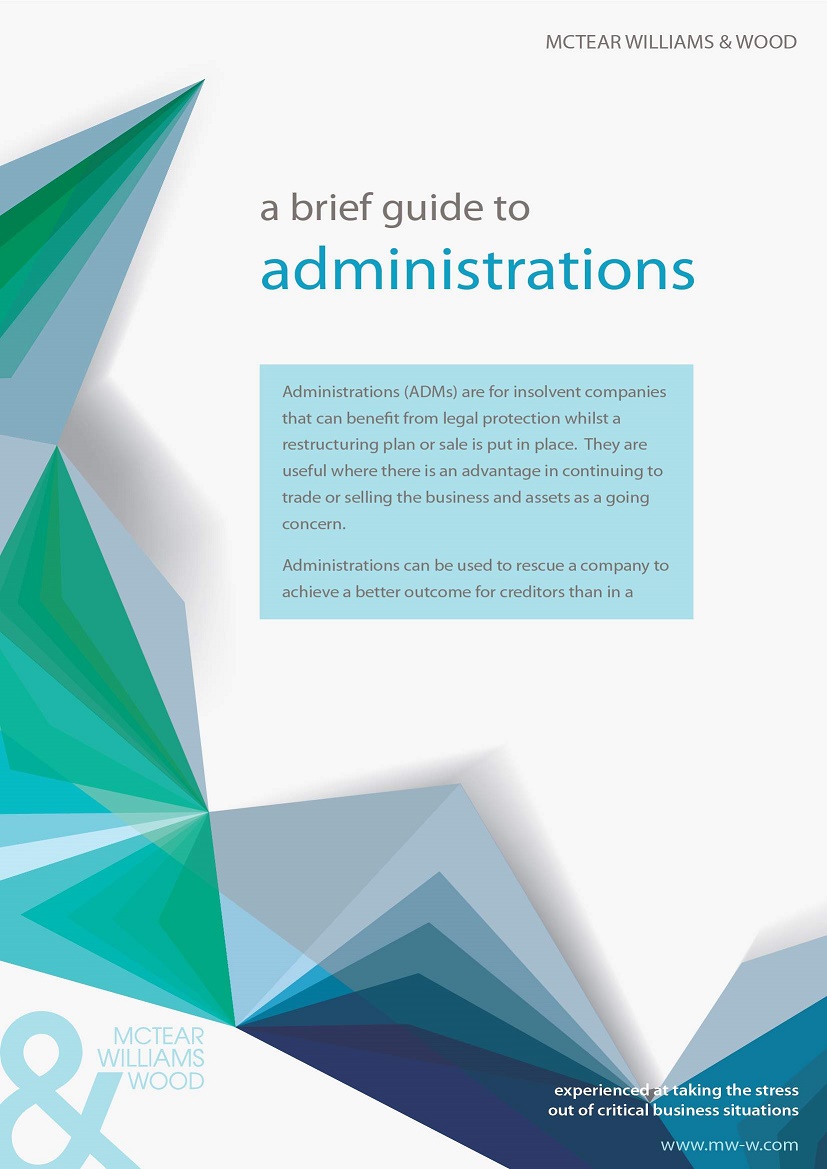FAQs for directors
Administrations
- What is administration?
Administration is a legal process that protects your limited company or partnership by order of the Court. Once the process has started no legal action can be taken against the business or any assets removed without the Court's approval or the licensed insolvency practitioner appointed as Administrator's. Read more here - Company administration - how does it work?
Administration means a company is protected by a Court Order and is being managed or run by a Licensed Insolvency Practitioner who is called an administrator. Administration usually lasts for a period of one year however in the first few weeks the business is usually traded and reduced in size, sold or closed down. Read more detail here - When should I put my company in administration?
When it is insolvent and there is a benefit in taking advantage of the statutory moratorium. For example if there is need to continue trading to complete work in progress or keep financed assets in situ so they can be sold with the business and assets as a going concern. - Is administration right for my business?
Administration is a quick and effective way to protect a company or partnership and stops creditors taking action. You can get into administration without the creditor’s or shareholder’s consent. This saves a lot of time. It can be the right solution for a business that can not trade out of its problems and needs some time and protection. Read more - Can a bank or other lender appoint an administrator?
Yes if they have a debenture with a qualifying rebating charge. If your company is in breach of its banking covenants and cannot meet a demand for repayment then it can file a Notice of Appointment in Court and the job is done. But so called hostile bank appointments are very rare and in most cases the directors make the appointment. - Is administration expensive?
Yes. An administrator has greater reporting requirements than a liquidator and there is usually additional trading by the company whilst trying to sell the business and assets as a going concern. - Can the directors appoint an administrator?
Yes. Most administration appointments are made by boards of directors using an "out of court" procedure. There is also an "in court" procedure which is mostly used where boards are unable to agree. If there is a debenture holder the directors have to give five days' notice during which it can appoint an administrator of their own choice. - Are there any disadvantages to administration?
The main disadvantage is that historic employee liabilities transfer with the business and assets. In a company with 20 employees with long service this can amount to £200,000 plus. There is a way round this - if you want to know what it is call us on 0800 331 7417 - What does administration mean for my business?
If a company goes into administration it means that the business has been protected by a Court order with the objective of rescuing the business as a going concern, getting a better return for creditors than in liquidation or repaying secured or preferential creditors. Read more here - How long does administration last?
Statute says no longer than 12 months unless extended by creditors or the Court. - What is TUPE?
TUPE is an acronym for The Transfer of Undertakings (Protection of Employment) Regulations. These rulings basically state that an employee's rights following the business when there is a new owner. So even if the business goes into administration the 'old' employees can follow the business owner even if they use a new separate legal entity. Read more - Can administration stop my company from entering liquidation?
Yes it can. Often Administration is used to halt a liquidation process and to give more time for the business to be rescued and restructured. Administration can be used by limited companies and partnership but not sole traders or practitioners. Read more - What happens after Administration?
If there are funds to distribute to unsecured creditors then the company can go into liquidation. If there are no funds it can move direct into dissolution. - Can I be disqualified from acting as a director?
Only if you have not acted properly. Acting on professional advice is usually a complete 'get out of jail card'. The most common grounds on which directors are disqualified - Trading to the detriment of HMRC, not treating creditors equally, recklessly incurring credit
Get in touch with our expert team of business rescue specialists for more information on 0800 331 7417


